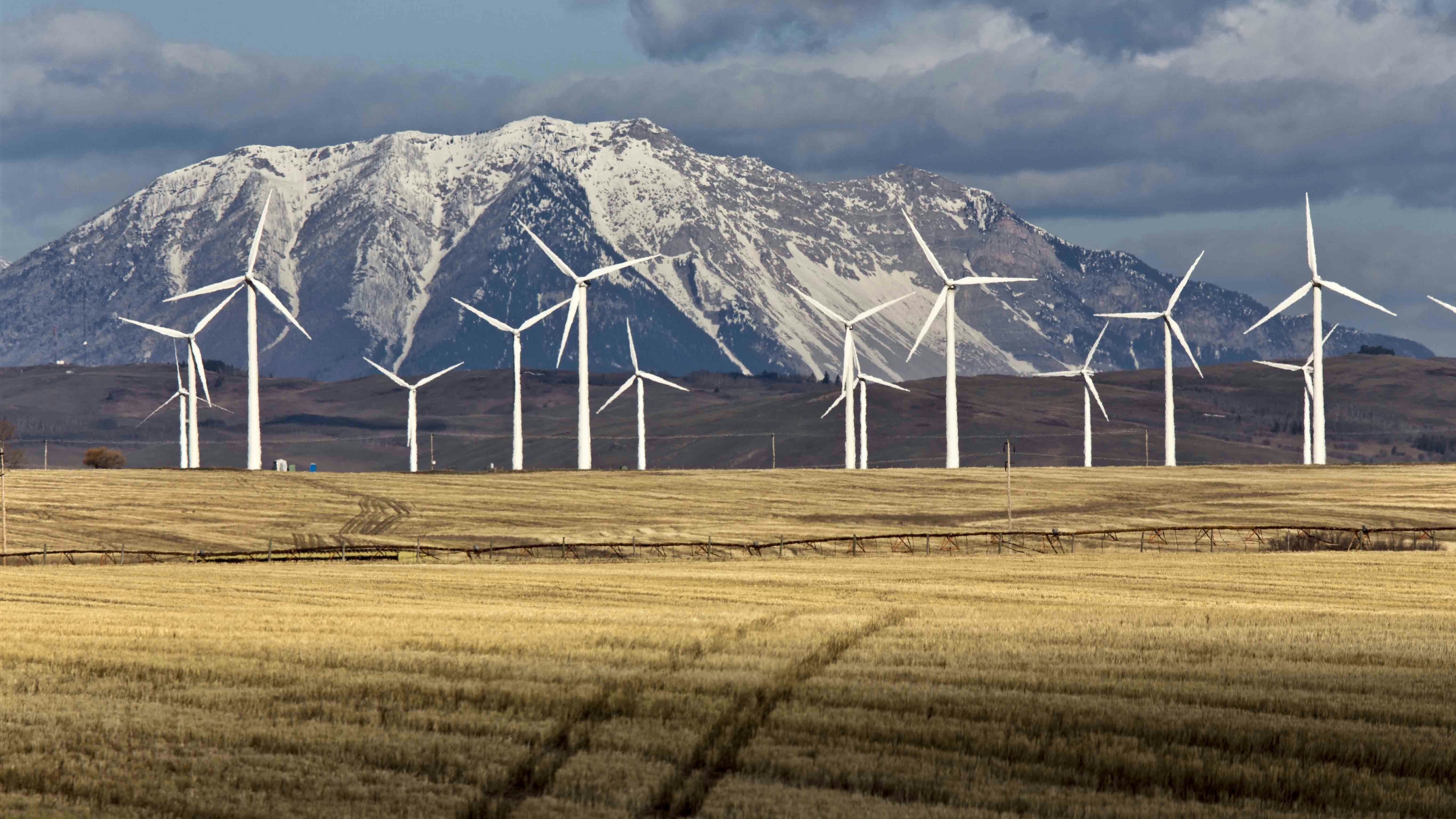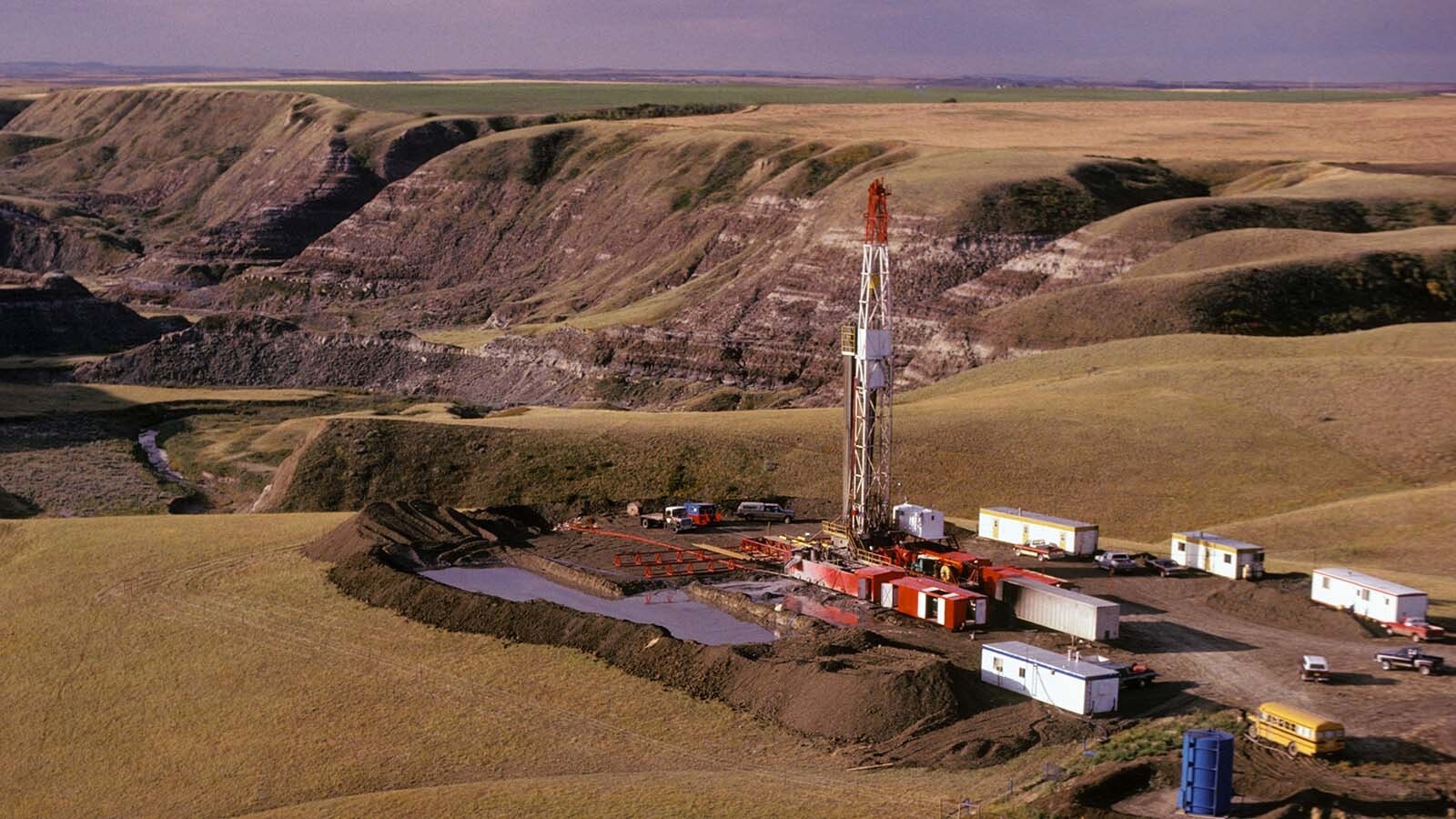Niobrara County Commissioner Patrick Wade illustrated for the Joint Agriculture Committee on Monday his first-hand experience about what it’s like for a landowner faced with eminent domain.
“It’s like dealing with someone that’s got a gun held to your head. That may be a little harsh, but you don’t ever forget it’s in their holster,” Wade said.
The committee was revisiting the topic after Gov. Mark Gordon in the last legislative session vetoed a bill that would have prohibited the use of eminent domain to build transmission lines for independently owned wind farms.
What Is It?
Eminent domain is a law that allows for the taking of private land by force, referred to as condemning the land, for a project that is deemed to be in the public good. Landowners are paid fair market value for the land, but they have no ability to say no.
Federal and state governments have used eminent domain to build highways, interstates, water supply pipelines and other projects deemed to be for the public good.
Transmission lines are bringing up new concerns about the law.
Wind and solar farms require exponentially more land than conventional power plants, and that will require an extensive buildout of thousands of miles of transmission lines to transport energy from wherever it is being produced at any given moment to where it’s being consumed.
The Wyoming Legislature passed a bill in the last legislative session that would have reinstated a moratorium that expired in 2015, on using eminent domain for what are called collector lines. These are transmission lines that go from an independently owned wind farm to a substation.
The bill, which Gordon vetoed, would have still allowed public utilities to use eminent domain for transmission lines, after completing a process through the Wyoming Public Service Commission that determines if the project will serve the public good.
Hosed By Pipeline
Wade said he got a lesson in the power of eminent domain when a pipeline company sought to build across his land.
Wade and his wife received a letter stating that the company was looking to build a pipeline on or in the vicinity of their property. The letter, Wade said, didn’t state that the company wanted to discuss building a pipeline. It said it was going to do it.
“That’s a pretty good way to pick a fight at our house,” Wade said.
Besides taking land, there’s also liability to the landowner if the company’s property is damaged. Unless negotiated otherwise, this includes accidents.
“If a landowner damages those projects, he may have just sold the ranch,” Wade said.
Wade said it’s different with a power line than with a pipeline, which gets put underground and the land cleaned up. The easements for a pipeline are temporary, whereas a power line needs a permanent easement since it’s above-ground.
‘Manifestly Unfair’
Kermit Brown, a former state representative, said he’s a private property rights advocate.
“The only thing worse than having a wind farm on your place is having a wind farm on your neighbor’s place,” Brown said.
When a landowner leases land for an independent wind farm, the neighbors, who don’t receive regular lease payments, are under threat of eminent domain for transmission lines in support of the wind farm.
The landowner with the wind farm has all kinds of power to negotiate conditions of the lease with the developer, Brown said, but not those who have the transmission lines crossing their property.
“It’s just manifestly unfair for one landowner to have all the choice and all the controls,” Brown said.
Brown also questioned using fair market value for condemned land, suggesting payments should be three times the appraised value of the land being taken.
‘Broaden This Discussion’
Kenneth G. Lay, senior managing director of The Rock Creek Group, said sometimes developers prefer to route projects through private land because it’s easier than going through state and federal land.
Federal regulations, such as the National Environmental Policy Act, can require lengthy environmental assessments that take years, and state processes, while not as long, are lengthier than when the project goes across private land.
Lay also said that it’s possible to put transmission lines underground so they’re less intrusive to the landowner. The developer would incur more costs, but rather than condemning property, Lay suggested there may be ways to reroute or do the project in a less impactful way.
“My concern is that we are not having those kinds of conversations. I think we need to broaden this discussion,” Lay said.
Another issue, Lay said, is that developers are routinely granted confidentiality rules, which is undermining a more transparent process.
This “can impede what I would describe as an open public dialogue about what is going to be the most appropriate balance that we could come to,” Lay said.
Proposed Language
Sen. Cale Case, R-Lander, proposed bill language to address the issue that would apply to all different types of independently owned projects, whether they be wind farms, battery facilities, pumped storage projects or nuclear power plants.
The proposed language would require these projects to go through the same process that public utilities must go through to utilize eminent domain. Before land could be condemned for a transmission project, the project would need to receive a certificate of public convenience and necessity from the Wyoming Public Service Commission.
Veto Explanation
In vetoing the bill that passed the Wyoming Legislature during the last session, Gordon called eminent domain a last resort.
During Monday’s committee hearing, no one was able to say that it had ever been used for an independently owned wind farm. However, facing the threat of eminent domain, landowners will often negotiate agreements with developers.
In explaining his veto, Gordon said in a statement that he was concerned about the nine-year moratorium the bill carried, which would stall wind development in Wyoming. The governor suggested the legislature consider two-year increments.
Gordon was also concerned that the bill was specific to wind farms and not transmission for other forms of energy.
Subsidies
Sen. Bob Ide, R-Casper, questioned if the way wind projects are supported with federal tax dollars can be considered in the public interest.
“The way I understand it, they’re not economical if they’re not subsidized,” Ide said.
With an “insolvent” federal government, Ide said, that prints money to get wind farms and transmission projects built, there’s a question if any of them are for the greatest public good.
“Is it in the public interest to enslave future generations?” Ide said.





